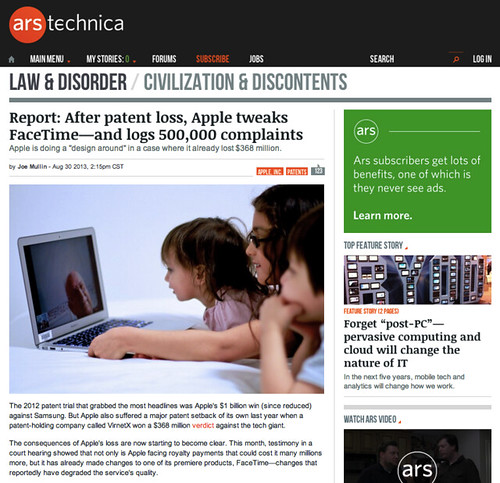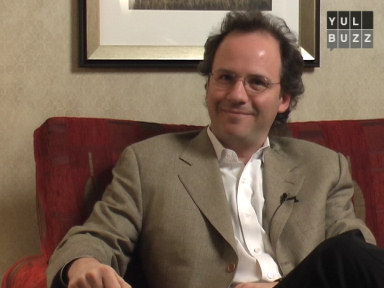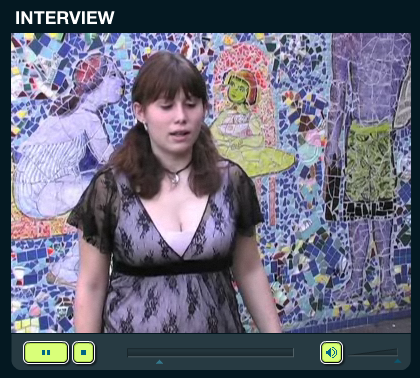My friend @robwall sent me this tweet a couple of days ago:
@courosa Does the pic in this article look familiar? (Buy I didn't see any attribution) http://t.co/NUrWFHVeu3
— Rob Wall (@robwall) August 31, 2013
The image that (currently) previews in that tweet isn’t the original photo that was posted to this Ars Technica article. Originally, the article featured an image of my three children engaging in a Facetime conversation with my dad. I released this image under a Creative Commons license (BY-NC-SA), one that requires attribution, non-commercial use, and that the license remains the same even if someone adapts the photograph. Below is a screenshot of the original photo placement in the article, and you should notice that attribution is not provided. This seemed particularly ironic as the content of the article deals with intellectual property, and the author writes prolifically on these topics.
Shortly after I received the tweet from Rob, I sent the author a tweet and posted a comment on the article. Essentially, I was fine with Ars Technica using the photograph, was happy to provide permission for non-commercial use, but urged Ars to provide proper attribution for the image. While it took several hours for a response (which I think is quite reasonable), I eventually received this tweet from the author, @joemullin.
.@courosa Your photo had a CC license that we use routinely; but no attribution was an oversight. 100% my fault, I apologize. Plz email me
— Joe Mullin (@joemullin) August 31, 2013
I was pleased with the response. I don’t see this as theft. I recognize that this could easily have been an oversight. And apologizing publicly is not easy for many. So, I respect Joe for that and appreciate the transparency in his response.
Shortly after this tweet for Joe, I also received an email from the editor. I have pasted the text of this email below, and respond to it here.
Hi, I’m the creative director for Ars. First off, let me apologize for the oversight on your image credit. Our policy is always to credit and link all CC licensed photos, a quick glance at some other stories on our site should show the credit below the image. This was simply a mistake, didn’t mean for you to feel ripped off or cheated in any way.
Thanks Aurich. I’m happy with your swift response. Personally, I do not feel ripped off or cheated as I don’t feel a strong sense of ownership for the content that I create. However, the lack of attribution cheats your readership (the general public). While it may not seem like a big deal in the case of this single photograph, I feel that proper attribution is essential in providing others with the origin, adaptions, and travels of an artefact or idea. I love seeing that my work is useful for others. But, without attribution, we silence potential conversations around the matter and the context of ideas/artefacts being shared.
Let me also apologize for using an image that must resonate with you emotionally right now, definitely not our intention. I prefer that our writers not use photos of people from Flickr, even when licensed clearly for use, they’re not professional models and it can sometimes come out badly. Better to stick with licensed stock art for that kind of thing when possible.
If you missed it here’s the public apology from the author:
Our policy is to just immediately pull any image if someone claims the rights to it and objects. We don’t even verify they own it, better safe than sorry. So in this case your photo was immediately pulled once your comment was seen.
I also want to address the non-commercial license issue, it’s a bit of a mess as far as sorting out what it means. My understanding from lawyers (I’m certainly not one) is that CC licenses under “non commercial” are fair use for editorial purposes, even if the site in question also operates as a for-profit entity (so banner ads etc). Understandably some people might be 100% fine with that, and others might object because it doesn’t meet the spirit of what they thought they were putting up under that license.So Joe wasn’t ignoring your license, he was just doing what he was told is fair game.
I really mention this though to say that it’s a pretty common industry practice, and if that bothers you then you might want to reconsider what CC license you use for some of your photos. I would hope that everyone would pull a photo down immediately if requested, but you still have to find out they’re using it first.
If I can help with anything else please let me know, I wanted to reach out to you directly once I was made aware of the issue. We’re grateful for people who share their photos for use, we don’t have a photography staff or art department, and we’d be poorer off without that generosity. Any time there’s any kind of issue with the system I want to make sure all parties feel like we take their concerns seriously.Thanks for your time, and sorry for the mixup.




